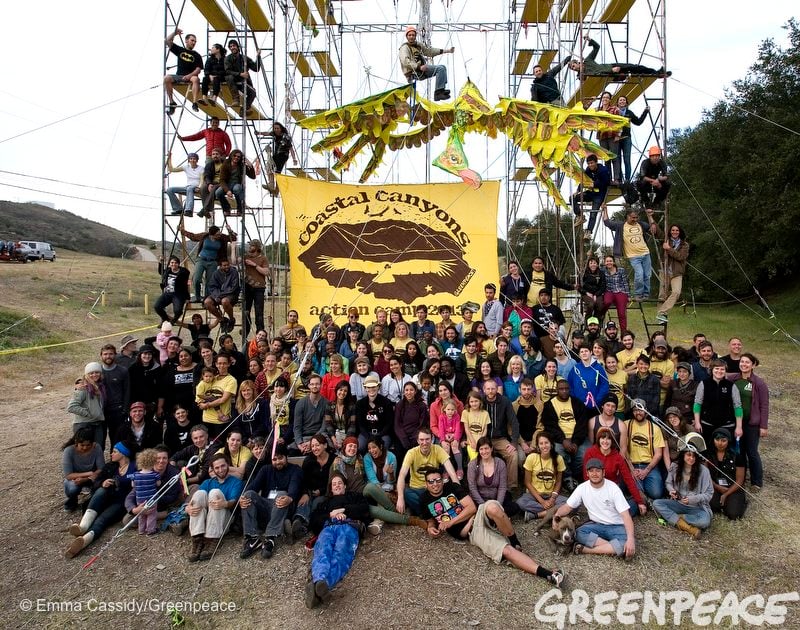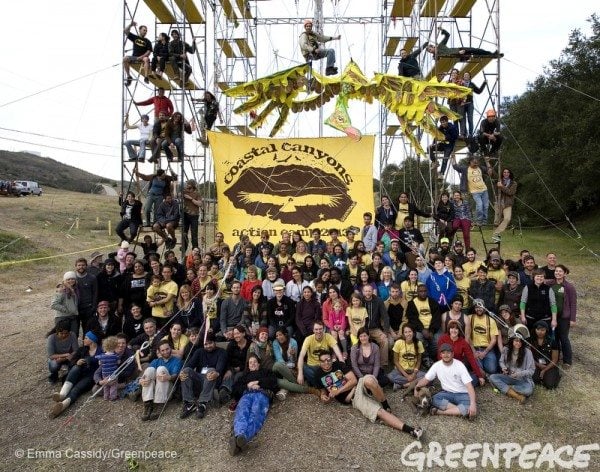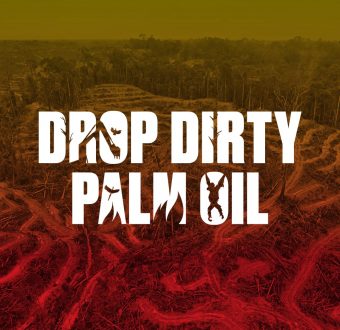For a long time, corporations and governments have used the tried and true tactic of divide and conquer: theyve tried to convince us that the immigrant rights struggle is different from the worker rights struggle, which is different from the climate justice struggle, to name just a few of the efforts to make the world a more sustainable place.
Of course, those divisions are false and self-serving: all of those struggles are linked by both cause and effect. The corporations, institutions and systems that caused environmental destruction by prioritizing the wealth of the few over the health of the many are the exact same ones that have trampled the rights of workers, immigrants, and the poor. And environmental crises like climate change promise to hit immigrant and poor communities the hardest.
Last week, Greenpeace hosted an Action Camp in Southern California for 160 activists where we focused intently on pushing back against those false divisions.
The Coastal Canyons Action Camp was the second annual direct action training camp that Greenpeace has hosted in our recent history. Activists learned to drive boats, honed their climbing skills, and practiced creating blockades to their bodies on the line to prevent environmental injustice when necessary. Artists focused on how to tell the story of our protests in clever, beautiful, provocative ways.
The participants represented a range of communities from the environmental movement and beyond. Some of the participants had worked with Greenpeace for years, but some never had. Some hailed from communities directly impacted by pollution, and some didnt. There were veterans from the coalfields, the Keystone XL pipeline fight and the forest defense movement, and other folks who may not have thought of themselves as environmentalists first and foremost. They identified with the struggles for immigrant rights, worker rights, indigenous rights and more. Long-time activists affiliated with groups like the Catalyst Project, Indigenous Environmental Network, Rainforest Action Network, and Ruckus Society shared their experience too.
There were people of color and white people. People from indigenous nations attended. Many of the activists skewed younger, but people in their 50s and 60s were there to share their wisdom too. A few parents brought young children, and some whole families attended together. There were people who identified as men, women, transgender, straight, gay, lesbian and queer, and people who do not identify with any of those words.
None of this is to say that the camp was a perfect picture of the diversity that the environmental movement including Greenpeace is still far from achieving. The process isnt easy learning how to understand and work with people who are different from yourself rarely is. Even within the camp, tensions arose as activists had to learn to work with new kinds of people. We also recognized that many of the groups with whom we could be forging alliances were absent.
But despite the challenges, the activists at camp worked to recognize each other as allies.
The skills that the activists learned at camp will be crucial tools. Theyll help a new generation of activists with Greenpeace and other groups confront environmental injustice at sea, on land and in the air.
But beyond the climbing harnesses, boats, blockade gear and paintbrushes, the new alliances we formed may have been the most powerful tool that any of us added to our collective arsenal last week.






